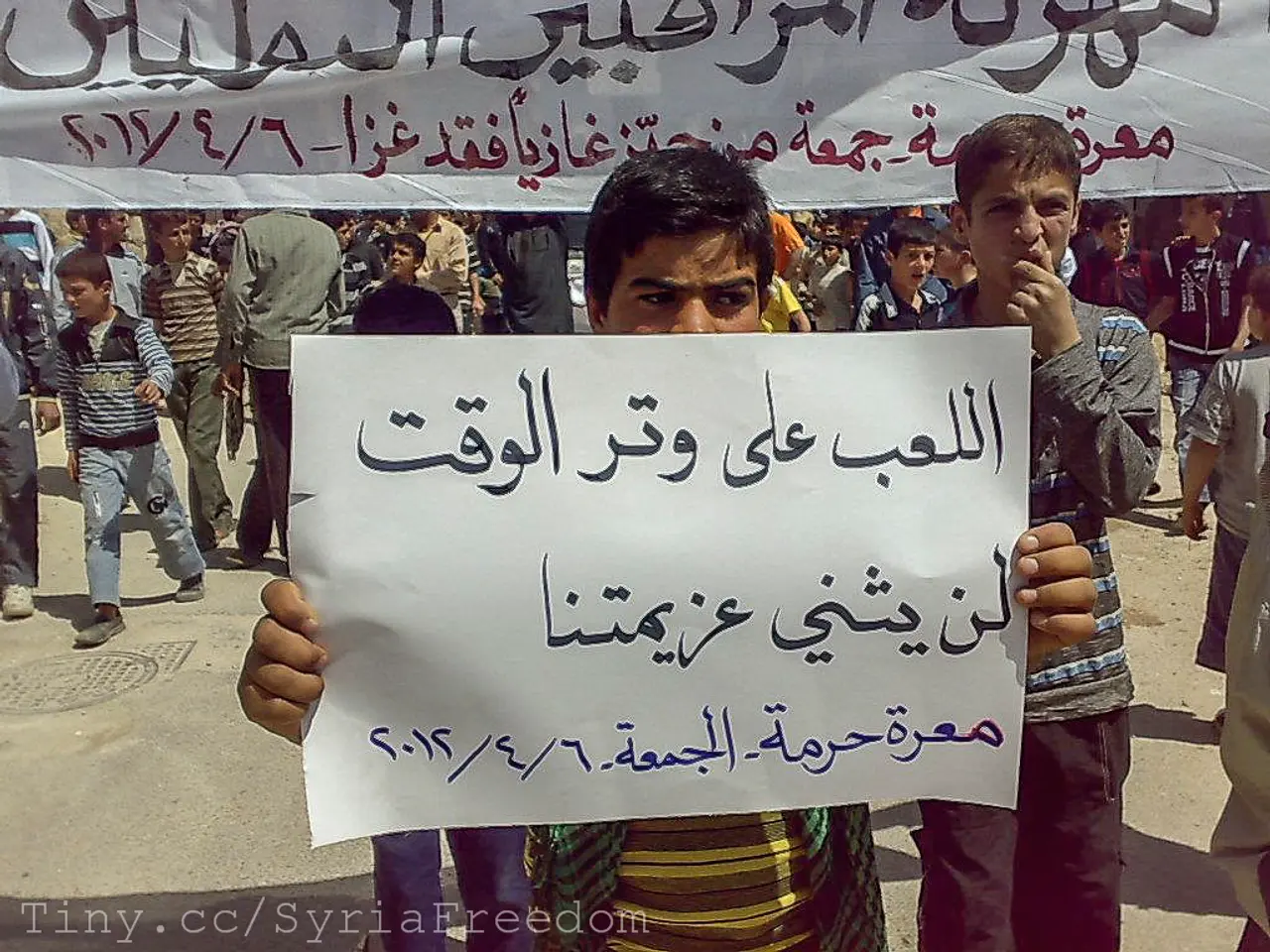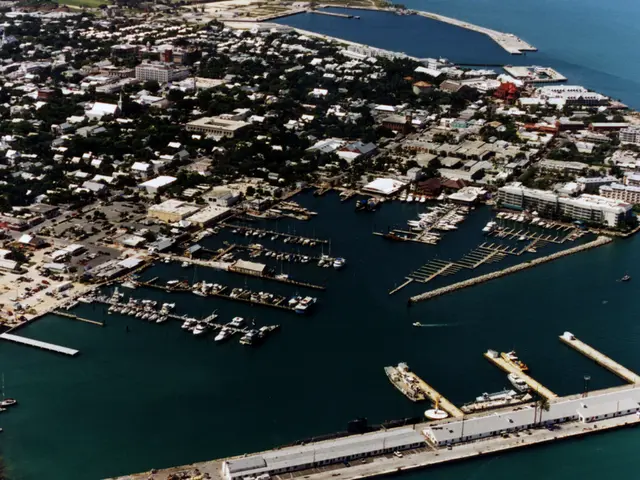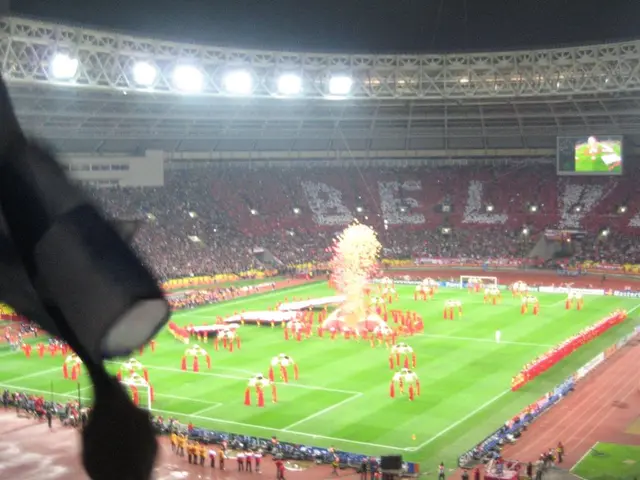Insufficient and Regrettably Overdue
Germany has taken a significant step in its response to the ongoing Gaza conflict by restricting arms exports to Israel, a move that comes in response to the Israeli government's actions in Gaza. This decision marks a shift from previous policies, where the German government only asked, reminded, and demanded that Israel adhere to international law.
The restriction of arms deliveries is a response to Israel's government's genocidal war leadership in Gaza, which has shown no interest in changing or stopping its actions. Over 60,000 people have been killed, and 1.9 million people have been internally displaced in Gaza, making this a humanitarian crisis of immense proportions.
Beyond this, Germany has also increased humanitarian assistance to Gaza, organizing airlifts of aid to address the worsening conditions caused by the blockade and conflict. The German government emphasizes the need for aid deliveries to be safe, humane, and permitted independently by the UN and humanitarian organizations.
Germany's leadership has also questioned Israel's military objectives and called for more dignified treatment of Gaza’s population, urging Israel to improve the humanitarian situation sustainably. This marks a shift toward more critical positioning while maintaining historical support for Israel's security.
Diplomatically, Germany has expressed the need for a ceasefire in Gaza and urged both sides to de-escalate the conflict. Chancellor Friedrich Merz and his predecessor Olaf Scholz have repeatedly called for diplomatic solutions and humanitarian improvements.
However, Germany's response has not been without criticism. Some argue that the government has clung too long to the illusion that it could influence Netanyahu by maintaining closeness, not condemning too harshly, and signaling diplomatic support.
As the situation in Gaza continues to unfold, Germany faces complex political decisions. The country must navigate its relationship with Israel while addressing the humanitarian crisis and ensuring the protection of Palestinian rights. This requires a delicate balance that reflects Germany’s historical responsibility toward Israel and concerns over the humanitarian impact and political complexities of the Gaza conflict.
In the future, Germany may consider enhancing diplomatic efforts toward a mediated peace process or two-state solution, collaborating with European partners on a unified stance that balances support for Israel with Palestinian humanitarian rights, increasing humanitarian aid access and support without admitting refugees, and applying political or economic pressure if the humanitarian crisis worsens or occupation policies continue.
The actions or inactions of current and former German leaders in relation to Israel's actions will be a lasting part of their legacies. As the opposition leader, Friedrich Merz is known for his frontal attacks against former Chancellor Olaf Scholz and Foreign Minister Annalena Baerbock. However, as federal chancellor, Merz may be remembered for hesitation in acting against Israel's actions. The SPD faction has spoken out in favor of steps to end the EU association agreement and impose sanctions on Benjamin Netanyahu.
The website, an independent, left-wing, and opinionated daily newspaper, has been a significant voice in this discourse. The website's content includes comments, essays, and debate texts, reflecting a very broad left-wing spectrum. The question remains whether lives could have been saved if Germany and the EU had acted earlier against Israel's actions.
- Beyond the arms export restriction, Germany is taking further steps to address the Gaza conflict, such as increasing humanitarian assistance and diplomatic efforts for a ceasefire and mediation.
- The current situation in Gaza requires Germany to navigate a delicate balance, addressing the humanitarian crisis, protecting Palestinian rights, and maintaining its historical relationship with Israel.
- In the future, Germany may consider enforcing sanctions on Israel's leaders, increasing humanitarian aid access, and collaborating with European partners to support both Israeli security and Palestinian humanitarian rights.
- The position of current and former German leaders, particularly their responses to the ongoing Gaza conflict, will be a significant aspect of their legacies, as seen with Germany's opposition leader, Friedrich Merz, and his criticism of former Chancellor Olaf Scholz's approach to the issue.








